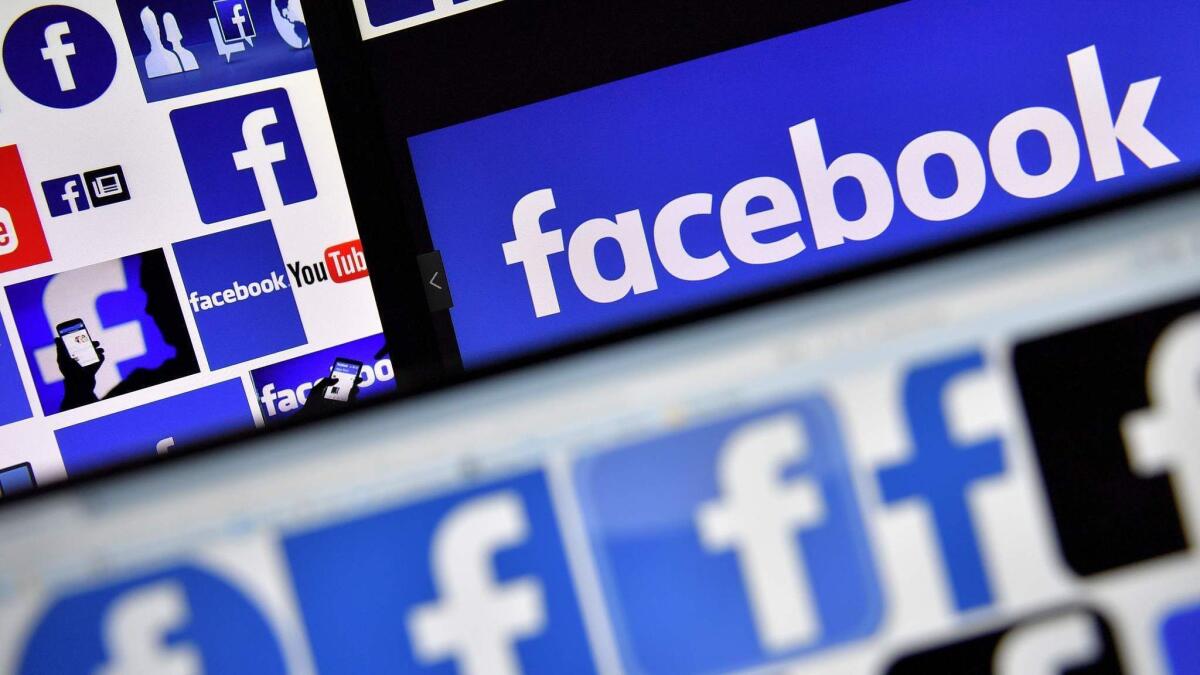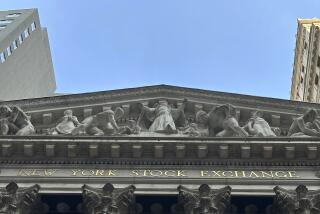Commentary: Facebook’s good quarter can’t hide tough ones ahead

Facebook Inc. ended 2018 with a strong kick, but 2019 is likely to be a lost year. What happens after that is a string of question marks.
I’ll start with the good news: Facebook’s earnings report, out Wednesday after markets closed, showed that its business is remarkably resilient and healthy even after losing a step or two. Revenue rose more than 30% in the fourth quarter, and its operating profit margin was 46% — a level that is the envy of the corporate world. The average number of people who use Facebook or its Messenger app daily increased slightly in both North America and Europe, which was a surprise.
Investors have lowered their expectations for Facebook and reacted to a better-than-feared showing by sending the stock up: Shares jumped 10.8% to $166.69 on Thursday.
A healthy quarter doesn’t change the reality that times are getting tougher for Facebook. In recent months, the company made a series of stunning admissions — that its revenue growth would slow, spending would soar, profit margins would shrink and user numbers would flat-line in parts of the world where Facebook generates the biggest chunk of its advertising sales.
Based on Facebook’s fourth-quarter results, its warning wasn’t an exaggeration. Revenue growth is slowing, and spending increased at about twice the pace of sales gains. Executives said Wednesday that the pattern would continue in 2019.
For the foreseeable future, Facebook is in an odd and uncomfortable place. It will remain a healthy business, but it is more vulnerable than it has been since its much younger days. Simultaneously, it is so powerful that it’s attracting unwanted attention for its data-collection practices and how it polices its influential digital hangouts.
Facebook is devoting itself to newer initiatives that potentially can keep the company flush for the future. It’s pouring money and attention into the video-and-photo diaries it copied from Snapchat, TV-like web videos, its messaging apps and its hardware for the home. It won’t be easy to make those initiatives persistently appealing to both web surfers and Facebook’s advertising customers. Even if they take hold, the newer projects will take time to generate significant financial returns. Expect 2019 to be a modest year by Facebook’s standards that investors will look past.
There are two tasks for the future of Facebook. First, it must keep the ardor people have for Facebook and Instagram and leverage that love to glue users to newer hangouts such as its TV-like Watch section and its classifieds site called Marketplace. Second, Facebook needs to find ways to make as much money from these offerings, its messaging apps and its video diaries as it does from its original innovation of a scrolling feed of information about friends, news and product offers.
It’s tough to predict the outcome of the efforts to achieve these twin goals, but they’re essential to whether Facebook continues to thrive as a dominant global internet power or ebbs over time as one-time stars such as Yahoo did. Facebook is nowhere near repeating Yahoo’s sad decline, but that company’s undoing is Facebook’s worst-case scenario.
Yahoo didn’t keep pace with how people wanted to spend their time online, and it couldn’t offer effective methods for businesses to pitch to large numbers of potential customers. Facebook is incredibly adept at keeping on top of changing internet habits and ensuring that its ads deliver results. But Facebook should never forget what happened to Yahoo.
Financial results for the next year or so won’t say much about Facebook’s ability to solve its core problem. Its most lucrative product — the feed, used on Facebook and Instagram — is fully tapping the most valuable users more quickly than the company and investors had expected. There is nothing else immediately ready to pick up the money-making baton and deliver the kind of high-profit revenue explosion that has been Facebook’s hallmark in the last couple of years.
Ovide is a Bloomberg opinion columnist covering technology.
More to Read
Inside the business of entertainment
The Wide Shot brings you news, analysis and insights on everything from streaming wars to production — and what it all means for the future.
You may occasionally receive promotional content from the Los Angeles Times.









